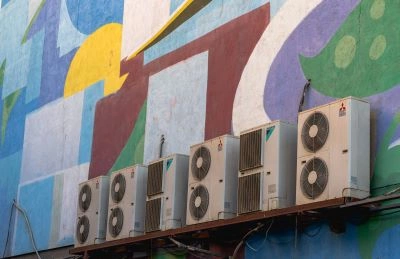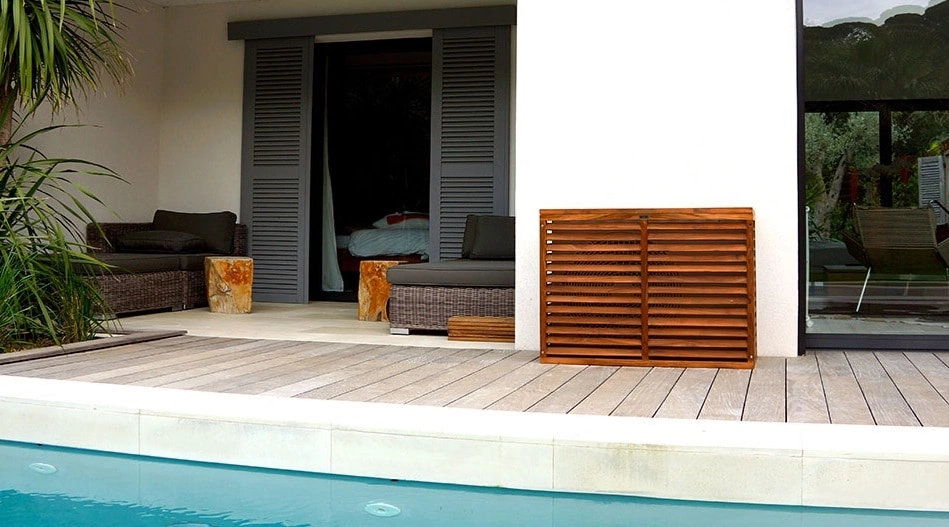UNDERSTAND THE FUNDAMENTALS OF AIR CONDITIONING
Operating principles of air conditioning
Like a refrigerator or a heat pump, the air conditioner operates on the principle of heat displacement. Thus, to cool a room, it does not produce cold strictly speaking. In fact, thanks to its refrigerant, it removes the heat from the room to move it outside!
It is for this reason that you notice that the outdoor unit of an air conditioner produces heat, just as one can feel the heat in the back of a refrigerator.
When we reverse this movement and we move the heat located outside the habitat to bring it inside and thus heat a room, then we call it a heat pump.
Some devices are capable of carrying out the 2 circuits alternately, to heat in winter and cool in summer, we then speak of “reversible” air conditioners.
The different types of air conditioners
There are 2 types of air conditioners
It consists of 2 devices connected by a sheath: the indoor air conditioner (it is fixed to the wall in the room and its design is generally designed to make it as discreet as possible) and the outdoor unit of the air conditioner (including motor and fan and whose design often leaves something to be desired).
It consists of a single device, which can be fixed or mobile, and it is connected to an evacuation duct which, as its name suggests, allows the heat to be evacuated outside the room. This requires connecting the duct to an exhaust duct, or failing that, connecting it to the outside of the room via a door or a half-open window.
The split air conditioner is less simple to install but it has a much higher cooling power than the monobloc air conditioner which can only cool a small room.
Advantages and disadvantages of air conditioners
- Advantage: The comfort of a cool room even in summer
The undeniable advantage of air conditioning is to enjoy a room at a regulated temperature. Much appreciated in the summer and in the sunniest regions, the air conditioning allows you not to suffer from the heat and to enjoy a habitat at the ideal temperature even when the mercury flies away outside.
- Disadvantage: The noise of the motor and the air conditioning fan
The air conditioner needs a motor (the compressor) and a fan to operate. However, these two elements make a lot of noise and that is why if we appreciate the comfort provided by the air conditioning, we often criticize it for being painful for the ears… Whose ears? It depends on the chosen air conditioner.
The monobloc air conditioner is especially noisy for the ears of the one who is in the room, because then the motor and the fan are located next to him, inside the apartment. In addition, if you have to leave the window open to pass the duct, then the noise from the street will be added which can be more or less annoying depending on the case.
Conversely, the split air conditioner is more discreet in the home. It makes less noise inside because the motor is deported outside the house. But it is also for this reason that it generally appeals less to neighbors who may complain about the noise it produces in the outside environment.
Pay attention to this aspect when choosing your air conditioner, and be aware that there are also casings for outdoor air conditioners that can reduce noise.
- Disadvantage: the device is rather ugly
Whether split or one-piece, let's be honest, nothing is more unsightly than an air conditioning motor. Placed on a balcony, the outdoor air conditioner considerably disfigures the terrace area. Suspended under a window, air conditioning like a wart and inevitably spoils the view of the facade of the house or building. And the more air conditioning installed… the worse it is obviously for the decor!
Fortunately, there are now casings for outdoor air conditioners, in wood or metal, which hide the air conditioning and thus make it possible to preserve the aesthetics of facades and balcony-terraces.
- Disadvantage: an air conditioning, it consumes
Any electrical appliance consumes electricity and air conditioners are no exception. They are also accused of contributing to global warming, which may seem counterproductive for a device that also fights heat!
You can minimize these two negative aspects by choosing a more efficient model. To do this, compare the energy labels that classify air conditioning units according to their energy efficiency, and choose the most efficient.
- Disadvantage: regular maintenance of the air conditioning is necessary
An air conditioning unit must be regularly checked and maintained, this guarantees proper operation, healthy air, and this avoids overconsumption or noise pollution due to clogged circuits. It is therefore advisable to clean the filters, the condensation tray, the grids, the fan, at least once a year.
During installation, it is thus necessary to ensure that the device remains accessible and manipulable to allow its maintenance.
Annual maintenance by a professional is even a legal obligation if the installation contains more than 2kg of refrigerant and its power exceeds 12kWh.
As we can see, air conditioning offers a very precious comfort of life but has some disadvantages that can put off.
So how do you make air conditioning more discreet?
How to reduce the noise of an air conditioner?
And how to protect your air conditioning from children's games?
You should know that these problems can be solved, partially or totally, thanks to formwork designed specifically for air conditioning.




